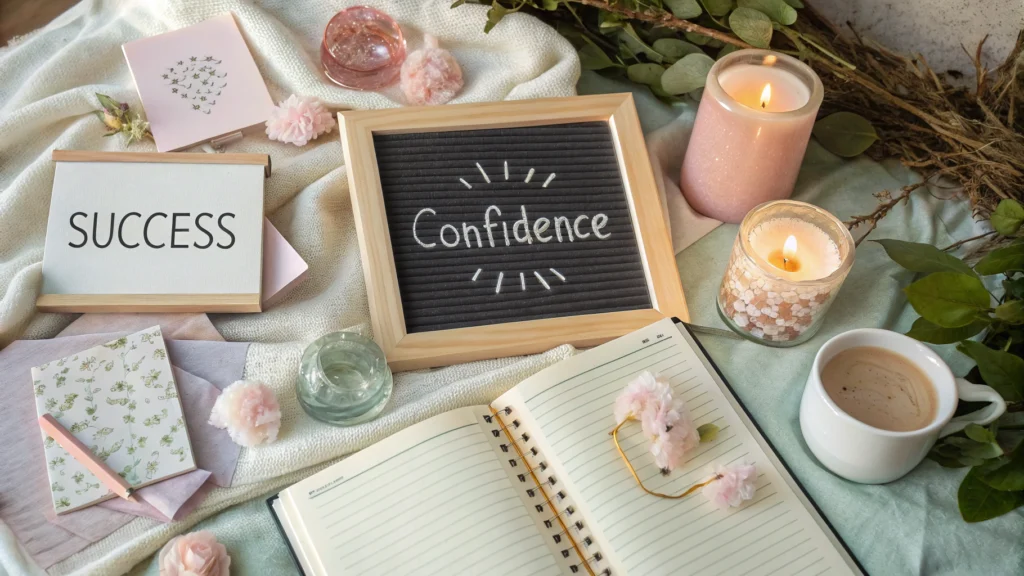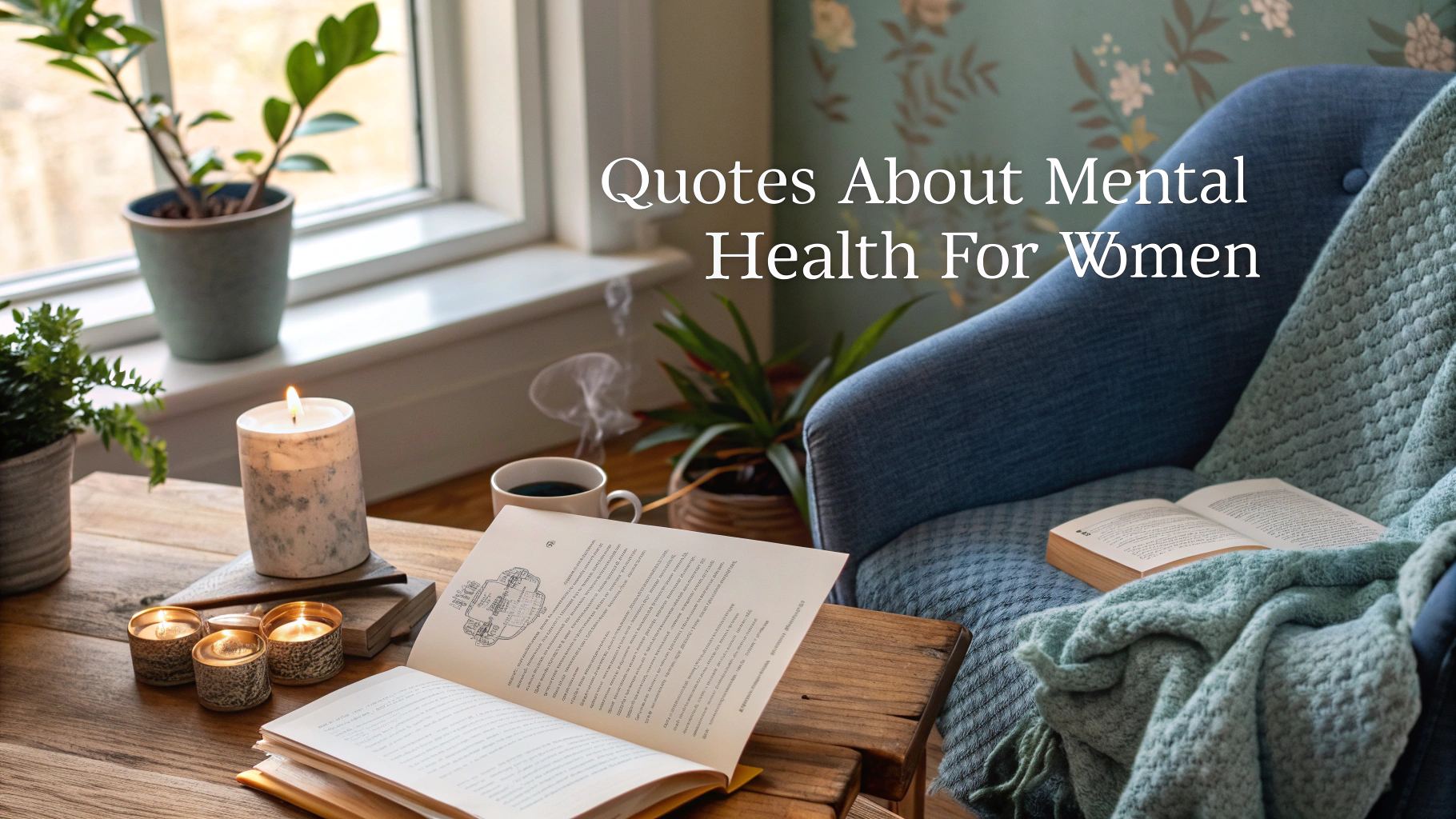15 Powerful Words of Encouragement for Women to Uplift You
Table of Contents
Introduction
Did you know that women are twice as likely as men to experience self-doubt in professional settings, according to a 2023 McKinsey study? This “confidence gap” affects everything from career advancement to personal fulfillment. In a world that often places unrealistic expectations on women, finding sources of genuine encouragement isn’t just helpful—it’s essential. The right words of encouragement for women can transform a moment of uncertainty into an opportunity for growth and self-belief.
This collection of empowering phrases goes beyond generic positivity to address the unique challenges women face today. Whether you’re navigating career transitions, relationship difficulties, or personal growth journeys, you’ll find specific encouragement designed to resonate with your experience and help you reclaim your power.
The Power of Self-Affirmation
Self-doubt can be particularly potent for women who often face societal pressures to be perfect in multiple roles simultaneously. Research from the University of Pennsylvania found that positive self-talk can reduce anxiety by up to 39% and increase performance in high-pressure situations by 27%. These statistics highlight why intentional self-affirmation isn’t just feel-good psychology—it’s a practical tool for success.
The following positive affirmations for women are designed to counter the most common negative thought patterns:
- “I deserve to take up space and share my voice without apology.”
- “My worth is not determined by others’ opinions or expectations.”
- “I embrace my authentic self, imperfections and all.”
- “My sensitivity is a strength that enhances my intuition and empathy.”
- “I release the need to compare my journey to others.”
What makes these affirmations particularly effective is their specificity. Rather than generic statements, they directly address the internalized messages many women struggle with daily. Try incorporating one of these into your morning routine by writing it on your bathroom mirror or setting it as a phone reminder.
Navigating Professional Challenges
The workplace presents unique challenges for women, from wage gaps to microaggressions. A 2022 Deloitte survey revealed that 80% of women have experienced some form of workplace bias, yet those who received regular encouragement reported 62% higher resilience scores.
These words of encouragement for women in professional settings can make a significant difference:
For Career Advancement
- “Your unique perspective isn’t just valuable—it’s vital. The table becomes richer when your voice joins the conversation.”
- “Remember that feeling uncomfortable in new challenges means you’re growing, not failing.”
- “Advocate for yourself with the same passion you would for a colleague you admire.”
For Workplace Confidence
- “You weren’t invited to that meeting to fill a quota—you were chosen for your expertise and insight.”
- “Your ideas deserve to be heard. Speak them with conviction even when your voice shakes.”
Leadership coach Elena Arminio notes, “The most effective encouragement acknowledges both the systemic challenges women face and their personal capacity to navigate them.” This balance between validation and empowerment is crucial for meaningful support.
Embracing Personal Growth and Resilience
Personal development often involves confronting limiting beliefs formed over decades. The most effective motivational words for women empowerment acknowledge this reality while inspiring forward movement.
“The woman who believes she can create change becomes unstoppable,” says psychologist Dr. Maya Turner. “But that belief rarely forms in isolation—it’s cultivated through intentional encouragement and community support.”
Consider these growth-focused encouragements:
- “Your resilience isn’t measured by never falling, but by how you choose to rise each time.”
- “Every experience—especially the difficult ones—is developing wisdom that will serve your future self.”
- “You are allowed to outgrow situations, relationships, and versions of yourself that no longer serve your highest good.”
- “Progress isn’t always visible in the moment. Trust that your consistent efforts are creating change beneath the surface.”
These statements are particularly powerful during major life transitions such as divorce, career changes, or empty nest adjustments—times when women often question their identity and direction.

Building Supportive Communities
The Harvard Study of Adult Development, one of the longest-running studies on happiness, found that strong relationships were the most consistent predictor of well-being throughout life. For women specifically, supportive female friendships correlate with lower stress levels, improved immune function, and greater career satisfaction.
Here are powerful ways to encourage other women in your circle:
- “I see your struggle, and I also see your strength. Both are valid, and both matter.”
- “Your journey doesn’t need to look like anyone else’s to be valuable and worthy.”
- “I believe in your capacity to navigate this challenge, and I’m here beside you while you do.”
These statements differ from generic compliments because they acknowledge both challenges and capabilities simultaneously. They create space for authentic experience while reinforcing confidence in the recipient’s abilities.
When women encourage each other with specificity and sincerity, they help create what sociologist Dr. Brené Brown calls “empathy bridges”—connections that validate experiences and foster collective resilience.
Conclusion
The right words of encouragement for women do more than temporarily boost mood—they can fundamentally shift how we view ourselves and our possibilities. By internalizing these messages and sharing them within our communities, we contribute to a culture where women’s confidence and capabilities are nurtured rather than undermined.
Remember that encouragement is most effective when it’s specific to your situation, acknowledges real challenges, and balances validation with empowerment. Whether you’re facing professional hurdles, navigating personal growth, or supporting other women in your life, intentional encouragement creates ripples that extend far beyond the moment.
Which encouragement resonated most deeply with you today? Consider writing it down somewhere visible as a daily reminder of your strength and potential.
FAQs
How can I make positive affirmations work when I don’t believe them?
Start with affirmations that feel slightly challenging but not completely unbelievable. Research shows that combining affirmations with physical movement (like saying them during a walk) increases their effectiveness by creating new neural pathways. Consistency matters more than intensity—a brief daily practice has been shown to create more lasting change than occasional longer sessions.
What’s the difference between toxic positivity and genuine encouragement?
Genuine encouragement acknowledges difficulties rather than dismissing them. Where toxic positivity might say “just stay positive!” effective encouragement might say “This is challenging, and I believe in your ability to navigate it.” The key difference is whether emotions are validated before moving toward solutions or positive perspectives.
How can I encourage another woman without sounding condescending?
Focus on specific observations rather than generalizations. Instead of “You’re so strong,” try “I’ve noticed how you handled that difficult client with such professionalism.” Also, ask permission before offering advice or solutions—sometimes validation alone is the most powerful form of encouragement.
Can words of encouragement actually impact professional success?
Research from the Stanford University “Wise Criticism” study found that explicit encouragement alongside feedback increased implementation of suggestions by 68% compared to criticism alone. This suggests that encouragement creates the psychological safety needed for women to take professional risks and implement constructive feedback—both essential components of career advancement.

